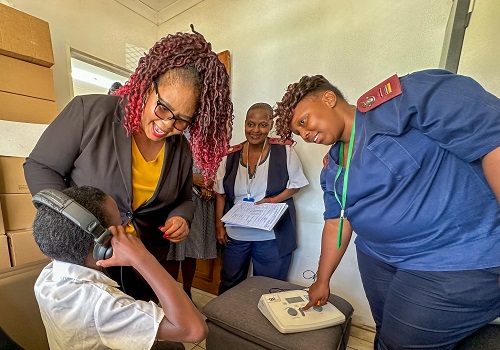Department of Health 2024/09/16 - 22:00

A total of 334 learners in Gauteng public schools have been issued with free hearing aids to enhance their hearing between April and August 2024, ensuring that there are no barriers to learning.
This is through the Gauteng Department of Health's (GDoH) Integrated School Health Programme (ISHP) where school health teams including nurses visit all primary and secondary schools in the province to screen and assess the learners in Grade R, 1, 4, 8, 10 for health issues that may affect learning.
Out of a total of 33 813 Grade 1 learners and 36 008 Grade 8 learners who were screened through the ISHP in the period under review, a total of 875 learners were identified as having hearing problems. Out of these, 334 were issued with hearing aids, while others were referred to the nearest health facilities and hospitals for further management and treatment by professional nurses, doctors, audiologist and speech therapists.
Hearing loss can be caused by long period of exposure to excessive noise, injury to the middle or inner ear, ear infection, impacted wax or presence of a foreign body in the ear. Through the ISHP, learners are given health education, health screening for vision, hearing and oral health, as well as onsite services such as deworming and immunisation. It is therefore important for parents to sign consent forms to ensure that children are not left out.
It is important that people avoid prolonged exposure to excessive noise and avoid putting anything in the ear canal to prevent hearing loss. Those who are experiencing hearing challenges including pain should visit their nearest health facility to receive appropriate care and treatment.
Those who present at health facilities for ear infections and are given antibiotics are encouraged to take the full course of your treatment as advised by a health professional to ensure full recovery.
In addition, the GDoH has issued 6 236 hearing aids across healthcare facilities in the 2023/24 financial year to both adult and paediatric patients. In the same period, 32 new cochlear implants were issued to patients who had permanently lost their hearing, while 28 patients had their devices upgraded to keep existing cochlear implants online.
RELATED NEWS
No related news

